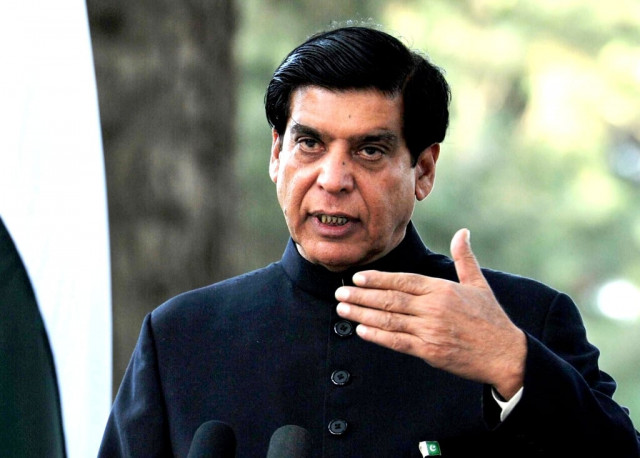Review petition: Critical court hearing on unwritten letter today
Govt is running out of options to buy time for PM Ashraf.

A five-member bench of the Supreme Court will take up government’s petition requesting the court to review the direction it had given to Prime Minister Raja Pervaiz Ashraf to initiate correspondence with the Swiss authorities to reopen graft cases against President Asif Ali Zardari.
After losing one prime minister in June this year, the PPP government, already short of options, had filed a review petition against the July 12 order of the apex court, in an apparent attempt to gain some time cushion for PM Ashraf.
The court has summoned the premier on August 27 to appear in person to explain his position before he could also face contempt of court charges like his predecessor Syed Yousaf Raza Gilani.
Another safety wall the PPP regime tried to install for PM Ashraf through a parliamentary act against contempt of court proceedings has already been struck down by the court earlier this month.
Legal experts believe that chances are slim that the government would be able to get any relief through this review petition. However, the attorney general would make an attempt to raise objections on the composition of the bench at the very onset of today’s hearing.
Many believe that the government’s petition could be dismissed on its first hearing and federation’s attempts to prolong the proceedings are likely to fail on technical grounds.
Advocate Ikram Chaudhry, a Supreme Court lawyer, said the order of writing a letter to Swiss authorities had originally come from a 17-judge bench when it had nullified contentious NRO back in 2009.
According to him a smaller bench like today’s five-judge bench cannot overrule the decision of a full court.
The attorney general will raise objection over the composition of the new bench, sources said.
Headed by Justice Asif Saeed Khosa, the five member bench would include Justice Sarmad Jalal Osmani, Justice Ejaz Afzal Khan, Justice Gulzar Ahmed and Justice Athar Saeed.
Justice Sarmad Jalal Osmani is new judge in the bench due to non-availability of Justice Ijaz Ahmed Chaudhry who was part of the bench that originally passed the July 12 order.
Sources said that the attorney general will raise an objection over the bench under rule 26 Order 8 of the Supreme Court that composition of the bench cannot be changed to hear review matters. He is likely to submit before the bench that the Arsalan Iftikhar case was adjourned until after Eid because of non-availability of a judge of the bench that is hearing the case.
Attorney General Irfan Qadir told The Express Tribune that he will also object over Justice Asif Saeed Khosa’s presence in the five-judge bench on the ground of alleged bias.
The AG had been claiming that before he assumed the charge, Justice Khosa and he had discussed this case and he knows the opinion of the judge on the matter.
Advocate Salman Akram Raja said that writing a letter is a middle way to avert the tussle between the executive and the judiciary.
Legal experts said that the review petition against a particular order of the court may not hold for very long as the court has already made it clear that now it is time to implement the court verdict on NRO.
Given that the court had already disposed of government’s review petition on NRO case, the original judgment cannot be re-considered, legal experts said.
Published in The Express Tribune, August 15th, 2012.



















COMMENTS
Comments are moderated and generally will be posted if they are on-topic and not abusive.
For more information, please see our Comments FAQ